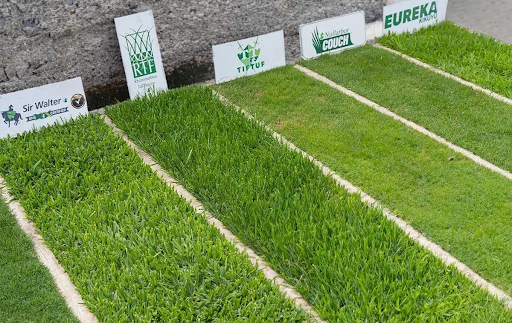The Role of a Plumber in Preventing Costly Water Damage

Water damage is one of the most destructive and costly issues that homeowners can face. Whether it’s a burst pipe, a leaking faucet, or a clogged drain, even small plumbing problems can escalate into major water damage if not properly addressed. This is where a professional plumber plays a critical role. Not only can they fix existing plumbing issues, but they also help prevent potential water damage by conducting routine maintenance and offering expert advice. In this article, we will explore how a plumber can help safeguard your home from the threat of expensive water damage.
Early Detection and Diagnosis of Plumbing Issues
One of the most significant ways a Plumber can help prevent water damage is through the early detection and diagnosis of plumbing problems. Many plumbing issues start off small and go unnoticed for a while. For instance, a slow leak under a sink may not seem like an immediate concern, but over time, it can cause water to pool under cabinets, leading to mold growth, rot, or even structural damage. Without the right tools and experience, homeowners may not spot these issues before they escalate.
A professional plumber is trained to identify warning signs of potential issues, such as abnormal water pressure, corrosion on pipes, or water stains. They have the expertise to pinpoint the source of the problem before it becomes a major issue. By addressing small plumbing issues early, you can save yourself from the high costs of water damage repairs and property restoration.
Regular Maintenance to Prevent Water Damage
Regular plumbing maintenance is another key area where a plumber can help you avoid costly water damage. Just like any other part of your home, your plumbing system requires routine inspections and upkeep. Without proper maintenance, the risk of leaks, clogs, and even flooding increases. A licensed plumber can provide comprehensive inspections, checking for signs of wear and tear on pipes, seals, faucets, and fixtures.
Routine maintenance tasks that a plumber can perform include cleaning drains to prevent blockages, inspecting water heater tanks for rust and leaks, checking for leaks around pipe joints, and ensuring that all pipes are properly insulated to prevent freezing during winter. By having these regular checks, small issues can be caught before they cause extensive damage.
For example, a plumber will check for signs of pipe corrosion, which may lead to leaks over time. If left unchecked, these leaks can damage walls, ceilings, and flooring. A simple replacement of corroded pipes during a routine inspection can save you from more expensive repairs later on.
Pipe Inspections and Upgrades
Older homes are particularly vulnerable to water damage because their plumbing systems may be outdated or deteriorating. Over time, pipes made from materials like galvanized steel or copper can corrode, weaken, and eventually burst. A plumber can assess the condition of your pipes and recommend upgrades to prevent these issues.
For instance, replacing old pipes with newer, more durable materials like PEX or PVC can significantly reduce the likelihood of leaks and bursts. A plumber can also suggest installing pipe insulation in areas prone to freezing, such as basements and attics. Cold temperatures can cause pipes to freeze and burst, leading to extensive water damage. Preventing this problem can save you from the headache of dealing with flooding and expensive repairs.
Water Pressure Regulation
High water pressure is another common cause of water damage in homes. Excessively high water pressure can place a strain on pipes, leading to leaks or even burst pipes. A professional plumber can install a pressure regulator to ensure that your water pressure is within safe limits. By regulating water pressure, you not only protect your plumbing system from damage but also extend the life of appliances like dishwashers, washing machines, and water heaters.
Regularly checking and adjusting your water pressure can help prevent unexpected bursts, leaks, and flooding, which can lead to costly water damage. A plumber can perform this task as part of a comprehensive plumbing inspection, giving you peace of mind that your home is protected.
Detecting Hidden Leaks
Some plumbing leaks aren’t visible to the naked eye, making them even more dangerous. Leaks inside walls, ceilings, or under floors can go unnoticed for weeks or even months, leading to significant water damage before they’re detected. A plumber can use specialized equipment like leak detectors or infrared cameras to find hidden leaks.
Once detected, these leaks can be quickly addressed to prevent further damage. The plumber will repair the leak and may also recommend restoring any water-damaged areas of your home. This service is especially important for detecting leaks in inaccessible areas, such as behind drywall or under the foundation, where water can cause structural damage over time.
Emergency Services for Immediate Water Damage Prevention
When a plumbing emergency strikes, time is of the essence. Whether it’s a burst pipe, a clogged drain, or a broken water heater, the faster a plumber can respond, the less likely it is that you’ll experience serious water damage. Many plumbers offer 24/7 emergency services, ensuring that help is available whenever you need it.
In the event of a plumbing emergency, a plumber can quickly identify the problem and shut off the water supply to prevent further damage. They will then work efficiently to repair the issue and restore your plumbing system to its normal function. Having access to emergency plumbing services is invaluable when dealing with a flood or major leak.
Flood Prevention and Drainage Solutions
Proper drainage is essential for keeping water out of your home, especially during heavy rains or storms. A plumber can help design and install effective drainage systems, including sump pumps and French drains, to divert water away from your home’s foundation. These solutions are particularly important for homes located in areas prone to flooding.
Sump pumps are installed in basements or crawl spaces to pump out excess water before it can accumulate and cause flooding. French drains, on the other hand, are installed around the perimeter of your home to redirect water away from the foundation. A plumber can assess your home’s drainage needs and install the appropriate system to keep your property dry.
Conclusion
A plumber plays a vital role in preventing costly water damage by detecting issues early, performing routine maintenance, and providing immediate repairs during emergencies. Whether it’s upgrading old pipes, checking for hidden leaks, or installing water pressure regulators, a professional plumber helps ensure that your plumbing system runs smoothly and efficiently. By relying on their expertise, you can avoid expensive water damage repairs and protect the integrity of your home.







